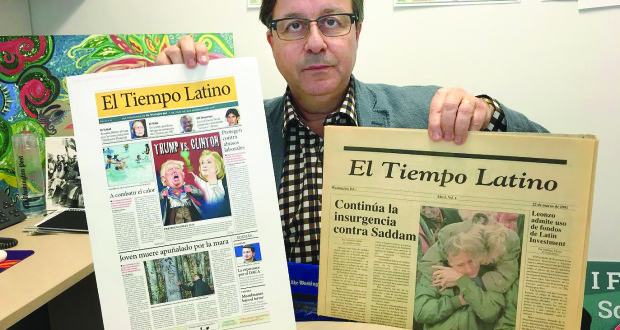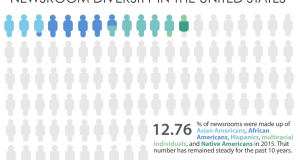As traditional media outlets seek to cut staff and slash budgets, ethnic newspapers from Detroit to Washington D.C. say they’re enjoying slow, stable growth thanks in part to robust demand for print editions.
Metro Detroit, home to a growing population of Asian and Hispanic Americans, has more than 40 ethnic newspapers, 15 ethnic TV stations and 11 ethnic radio stations. That, industry experts say, is only expected to grow as the region could see a 1.8 million population boost in the next ten years
“A lot of ethnic groups are very clannish when it comes to their media,” said Rico Neller, founder of La Prensa, a Spanish language weekly newspaper that publishes editions in Michigan and Ohio. “They want a hard copy, and it’s good for us.”
Neller said Hispanic growth has helped establish a larger niche for his publication. “The dailies, they are not covering what Hispanics might be interested in, like our soccer or baseball,” he said.
Dominic LaRosa, advertising account executive for Detroit’s English-language Italian Tribune, said the publication is experiencing unanticipated growth and increased demand for ad space.
He said a 56-page July issue celebrating a Detroit-area Italian festival generated the largest revenue in the 107-year history of the publication.
The paper runs a bi-weekly edition with between 60 to 100 advertisements, LaRosa said, and it’s working to build an online presence to appeal to more advertisers.
“It’s going really well and strong,” LaRosa said. “I see our print edition getting larger. We haven’t had much growth online, because we find advertisers more interested in print advertising.”
Alberto Avendaño, editor of El Tiempo Latino in Washington D.C., said his paper is trying to focus more on its online presence to better serve U.S.-born populations and advertisers, but the organization still makes the print version a priority.
“The doors are opening for new media and new experimentation within our brands,” Avendaño said. “We have a hostage audience that are newcomers – the first immigrants – that still use the hard copy paper for classifieds.”
Tack-Yong Kim, founder and publisher of Detroit’s Michigan Korean Weekly newspaper, also recognized a need to balance demand for the print product with maintaining a strong online presence.
“We are trying to feature a lot of things for the current generation and past generations, and access them all,” he said.
Kim said he is also establishing partnerships with major Detroit corporations to help them establish ethnic marketing initiatives.
“My state of revenue is going up little by little every year,” he said. “Because we are a growing community, many large companies know that opening ethnic marketing opportunities is very important. We are hopeful they will support us, because we support them.”
 VOICES Publishing from the AAJA National Convention
VOICES Publishing from the AAJA National Convention








